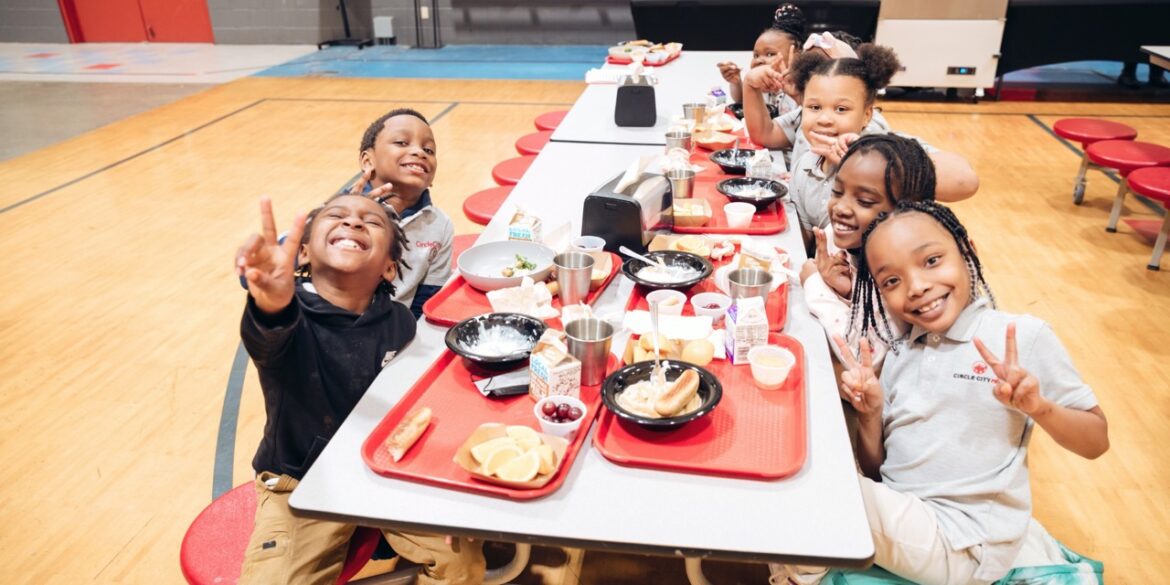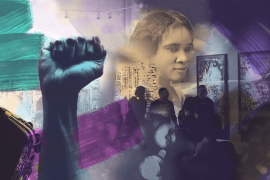The Patachou Foundation is working to transform school cafeterias across Marion County through its new PataSchool model in an effort to lessen local food insecurity. With school meals representing the most effective hunger relief program for children, PataSchool seeks to provide a sustainable strategy for fighting hunger. The model provides school kitchens with the necessary infrastructure to serve scratch-made meals for breakfast, lunch, and afternoon snacks at no cost to students.
According to Matthew Feltrop, the executive director of PataSchool, the model works to fill the gaps where many school kitchens and federally-funded programs fall short in combating Marion County food insecurity. Feltrop says that in many cases, Indianapolis schools don’t have functioning kitchens. Instead, some schools have what’s called a heat-and-serve kitchen in their cafeteria. These kitchens are not conducive to preparing quality meals and only provide the ability to reheat pre-packaged foods.
“[It] really limits what they’re able to serve to students,” Feltrop says. “Ultimately, [school kitchens are] affecting how kids are behaving in school [and] the quality of the nutrition that they’re able to access inside the cafeteria.”
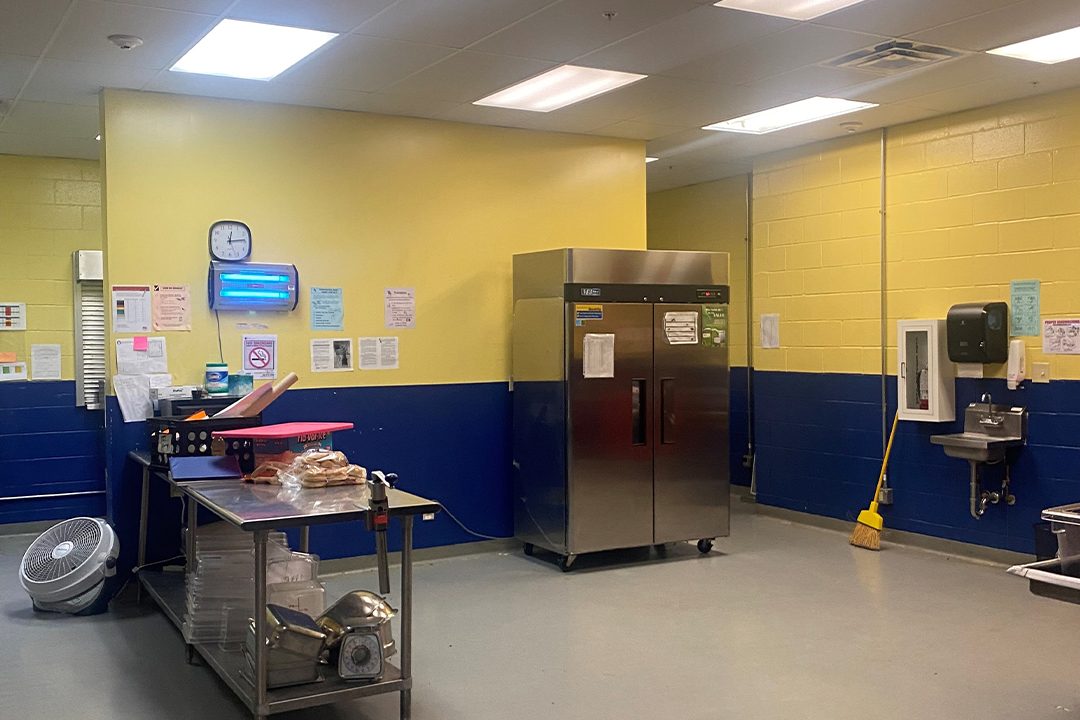
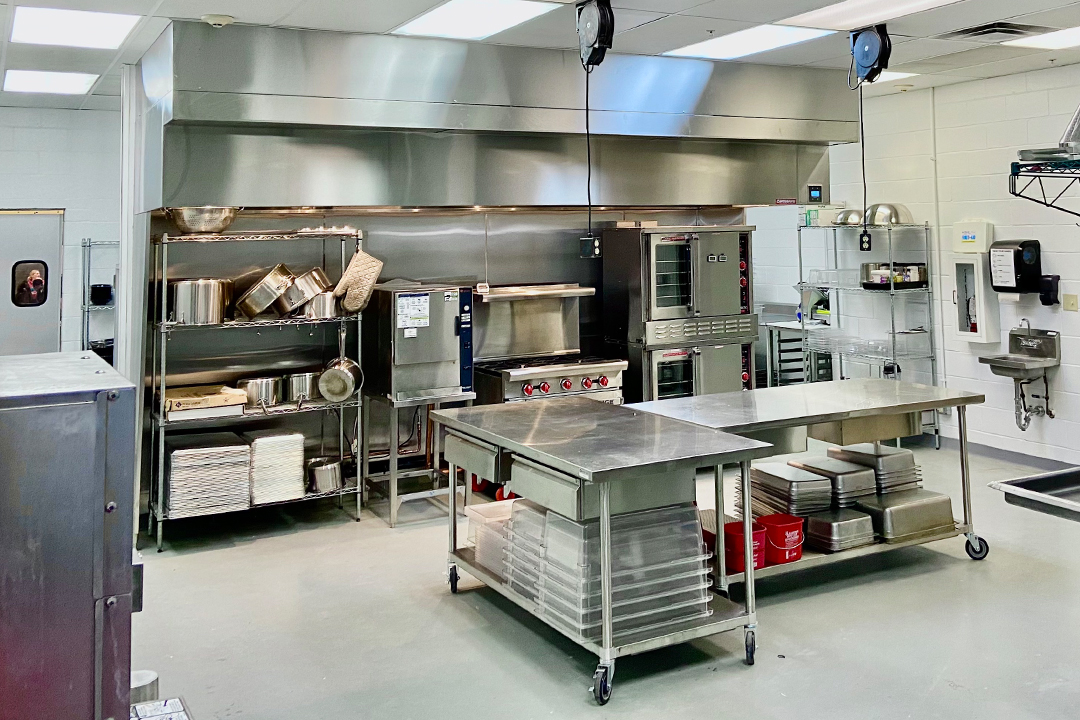
The PataSchool model began to help solve this issue last year at Circle City Prep, a public charter school located on the far east side of Indianapolis. The Patachou Foundation facilitated the kitchen buildout, transforming the school kitchen to include the necessary equipment for making food from scratch. Additionally, the Foundation’s culinary director, Chef Shannon Mitchell, trained school staff to create meals that are made from scratch, USDA-compliant, and similar in quality to those served in TPF’s Meals for Kids program.
“I feel like it’s very important for us to start addressing these issues from inside the school,” Mitchell says in a video from the Foundation. “It’s a systemic problem, and we find that you cannot solve a systemic problem with a quick solution, with emergency relief. We want to build something sustainable that everyone can hold onto in the future.”
Now, TPF will be doing the same with Adelante Schools at Emma Donnan this fall.
It’s an effective strategy for fighting hunger in a city that has historically ranked among the worst cities in the nation for food access. The Patachou Foundation’s website states that almost 80 percent of children attending schools served by the Foundation are faced with daily food insecurity and hunger. Acting as a long-term solution, the PataSchool model will allow The Patachou Foundation to provide more meals than ever before.
According to Feltrop, The Patachou Foundation will serve its 500,000th meal this year—a milestone he credits to PataSchool’s efficacy.
“Over the last ten years we have served—up to this point—about 400,000 meals,” Feltrop says. “But by working with one school to serve their breakfast, lunch, and snack, we will serve over 120,000 meals in that one school alone… Next year, we’ll be in two schools. We’ll be working with about 600-700 students in those two schools alone and will serve about 200,000 meals during the school year to all of the students, which is pretty incredible.”
To maximize its impact, the Foundation intentionally engaged with parents, staff, and students during the development of PataSchool to understand what communities hoped to see in their cafeterias. With this approach, schools are able to receive a menu that is geared specifically to students’ needs.
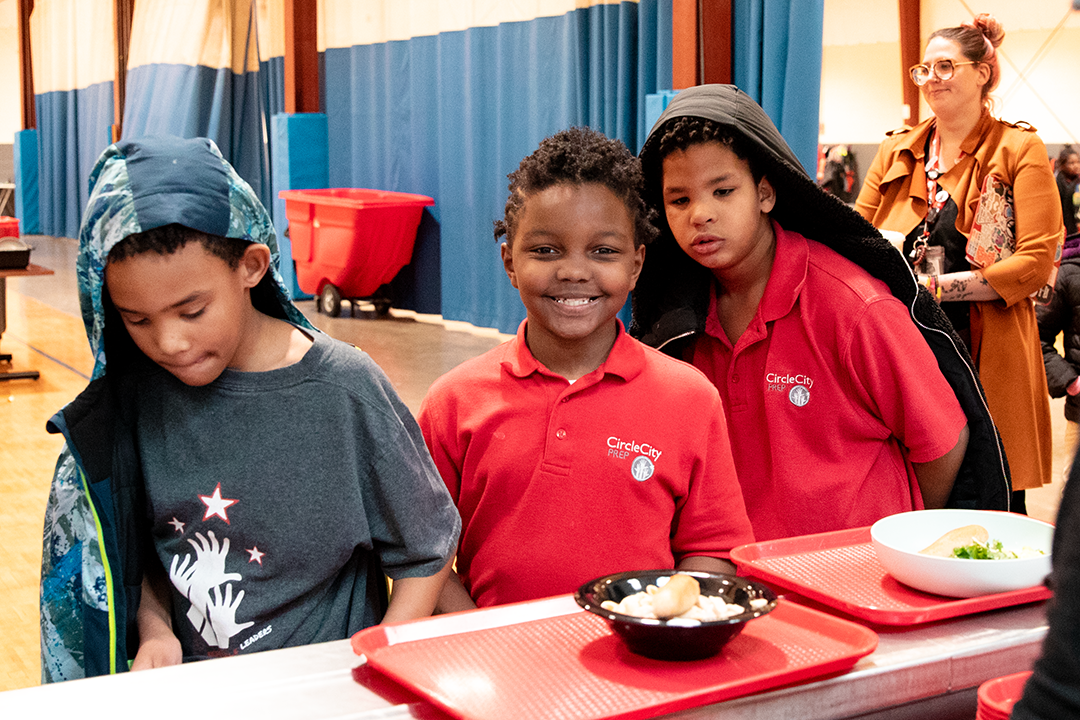
“[The food is] not just what you can get from the freezer, which is like a one-size-fits-all option,” Feltrop says. “The huge benefit of being able to scratch-make food is that you can create something that a kid is going to like. We can make sure that they’re going to like it by asking them if they like it.”
The numbers show that involving community voices has certainly paid off. Since transforming Circle City Prep’s kitchen, The Patachou Foundation has been working with IU Health to evaluate the efficacy of the PataSchool program. According to Vincent Black, the Foundation’s director of marketing and communications, they have found that 40 percent more students are satisfied with their meals, and 30 percent more students are eating vegetables.
“They will go into the school and they’re eating chicken caesar salads,” Black says. “They love the chicken caesar salads! And they love hummus. They’re getting exposed to so many things that they wouldn’t if they were just getting lunch prepackaged.”
Even after the Foundation’s work in a school is done, the PataSchool model ensures that schools maintain the capacity to serve scratch-made meals to students. The infrastructure is embedded within the school communities through a robust, living document called a ‘wellness plan,’ which allows school communities to continually dictate what they hope to see in their cafeterias.
“The ultimate goal of PataSchool is that the capacity to make this food is within the school community and our support is not needed on the same level forever,” Feltrop says. “They can continue to run the program on their own, and that community oversight is something that’s really important for the long-term sustainability of the program.”
Look out for the PataSchool model in additional Marion County schools as The Patachou Foundation works to provide hunger relief through school meals across the city.
Want to be a part? Consider getting involved by joining the Foundation’s newsletter to stay educated on food insecurity in Indianapolis, or by making a donation.

